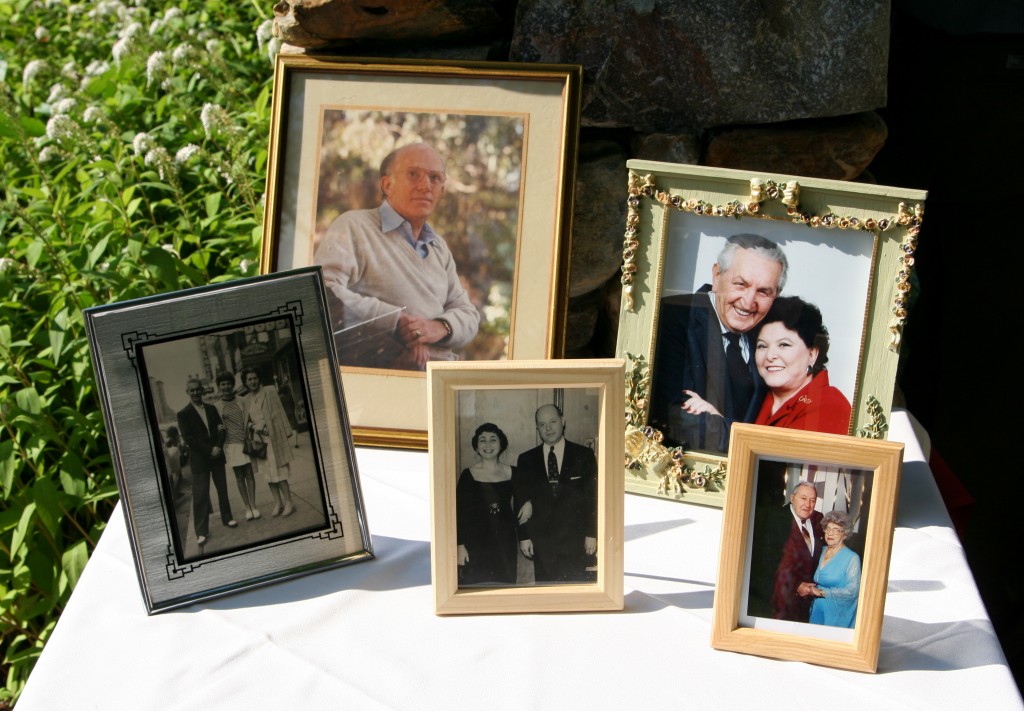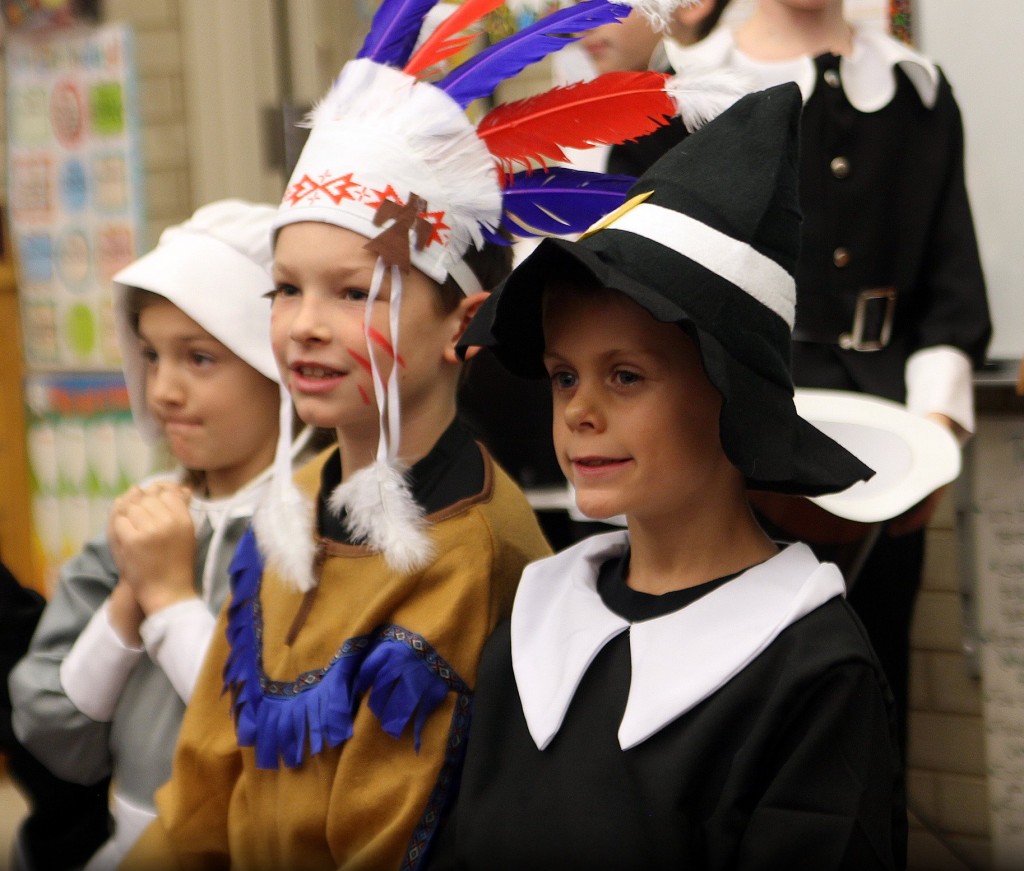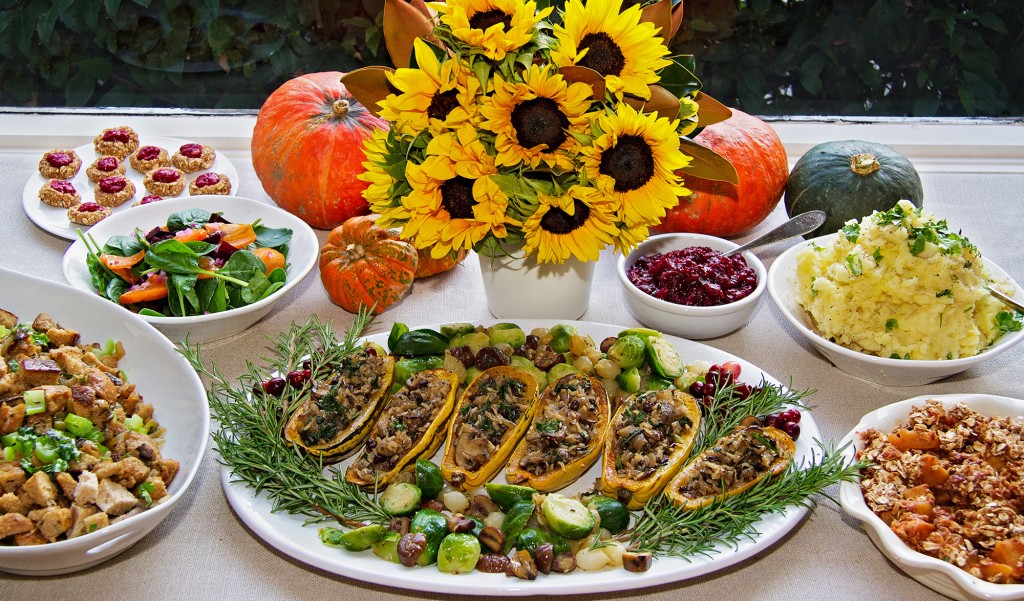
Coping with the Holidays After the Death of a Loved One
Photo Credit: Sandor Wise, via Flickr Creative Commons
“When it seems that our sorrow is too great to be borne,
let us think of the great family of the heavy-hearted, into which our grief has given us entrance,
and inevitably, we will feel about us,
their arms, their sympathy, their understanding”.
–Helen Keller
When I was a child, the holiday season was the highlight of my year. After the excitement of starting a new school year in September, I looked forward to the time between Halloween and New Year’s Day because I knew it would be filled with fun, family, and festive celebrations. But getting ready for the first holiday season after my Dad died was another story. The idea of celebrating without him seemed to turn my already deep well of grief into an even deeper bottomless pit of loss and sadness. Past happy holiday memories fell silent in his absence. All I could think about was his empty chair at our Thanksgiving table.
The grieving process teaches us that emotional time often does not correlate with clock time
Coping with the holidays after a loved one’s passing can feel like an overwhelming, lonely and daunting process. We must give ourselves permission to honor our grieving process right alongside the task of managing our days. We can learn how to do this by increasing our self-compassion and welcoming the support of others as we gently navigate our way through the holiday season.
Gifts to Ease Your Grief Through the Holiday Season
The Gift of Time
In our “hurry-up” culture, otherwise well-intentioned friends may pressure us to “get over” our grief much sooner than we are prepared to do so. Because they care for us, they want us to feel better faster. So often we hear others comment that we should be able to “get back to normal” (whatever that means) within a year after a loss. This can be an unfair and hurtful expectation. Too often the pressure to move on from our missing loved one compounds our grief. But the grieving process does not ask us to move on from someone we love. It encourages us to move through the suffering of our loss at our own, unique pace. This is a deeply sensitive and sacred process that must never be rushed.
You must give yourself permission to determine whether or not the timing of various holiday obligations and festivities will work for you. You have every right to decide which holiday events you do or do not choose to attend. For example, when you’re feeling lonely and sad you may decide to reach out for the company of a close friend or two instead of attending a large holiday get-together.
Grief does not come in a one-size-fits-all format. The grieving process teaches us that emotional time often does not correlate with clock time. It is not unusual for people to take a minimum of 3 to 5 years to accept the loss of someone they loved. Our feelings for our loved ones are timeless. Although we can no longer put our arms around them, we feel that our loved ones who have passed are still very much alive and present in our thoughts, feelings and perceptions. It brings us peace to feel that they are tucked safely, securely and lovingly in our hearts and memories for always.
The Gift of Self-Care
Navigating through the first holiday season following a loss can feel so very confusing and complicated. Getting back to the basics of nourishing self-care will help you immeasurably in keeping things steady, simple and satisfying. When you feel more balanced in body and mind it will be easier for you to make holiday choices that will lift your spirits and not burden you further.
Enjoyable exercise during the day will help you to sleep better at night.
Healthy, delicious and nutritious meals will help to sustain your physical energy especially when you are feeling low emotionally.
Fostering daily stress management practices such as meditation, gentle yoga, or prayer time in your faith tradition can provide you with comfort, respite and relaxation.
Periodically scheduling a therapeutic massage (check with your doctor first) or taking a daily warm bath with essential oils can both soothe and enliven your senses. Remember that touch has the ability to connect us with others while simultaneously decreasing our feelings of loneliness. Touching or being touched by someone you love has been shown to reduce stress hormones and promote interpersonal connection and bonding. Never underestimate the healing power of a simple hug.
The Gift of Doing Things Differently
Before the death of your loved one, you may have been the one who planned and hosted holiday gatherings. Take some time now to determine whether you want to do it in the same way or even at all this year. What always came so easily to you in the past, may now feel too overwhelming to consider. Weigh this gently for yourself. Choosing to be alone could serve to emphasize your loneliness and compound your grief. Whereas being surrounded by others may ease the pain of the absence of your loved one. Sometimes devoting time and creativity to organizing a get-together can be a welcomed distraction. On the other hand, it may be too hard to give a party when you are mourning. You may not feel that you have the physical and emotional energy needed to deal with all of the rigorous planning details that will be required of you.
Never accuse yourself of being “selfish” simply because you are choosing to do things differently this holiday season. People who care about you want you to feel loved and accepted. They want you to respect your mourning and its purposeful, healing expression in whatever way is best for you.
The Gift of Open-Hearted Communication and Connection
The grieving process often feels like an unpredictable roller coaster ride that waxes and wanes in intensity and frequency. This can be compounded by the added built-in pressures of any holiday season. When we are feeling vulnerable, many of us tend to isolate ourselves from others. While we are entitled to times of solitude, times of togetherness can help us to integrate our feelings of sadness and loss while softening and dissolving the harsh and rigid edges of our loneliness.
Let trusted others know if talking about your loved one with them is helpful for you. Many friends and family members fear that it might upset you if they mention the person you are missing. But many of us feel that it is when we stop talking about a loved one who has passed that they sometimes feel lost to us.
I vividly recall a close childhood friend of mine who came to visit me at the holidays after my Dad died. She pulled a large envelope out of her purse. Before opening it, she told me that it contained photos of my Dad, her, me and other family members from past, shared events over the years. She gently asked if we could look at them together. We proceeded to laugh, cry and reminisce as we lingered over each and every one. I will never forget the love, support and connection that I felt from this generous and thoughtful act of caring.
Take some dedicated time to talk with your family and friends regarding plans for the upcoming holiday. How would you like to honor your absent loved one in light of your family traditions? Some families choose to set a place at the holiday table for the loved one who has passed. Others decide to set aside time to share favorite stories and cherished memories or to recite prayers together. Discuss ahead of time how to delegate the various holiday duties of shopping, cooking, cleaning and decorating. Decide together which past traditions you would like to retain. Perhaps a new idea or two can become a part of the ongoing family tradition. Some families choose to select a different charity each year and collectively make a donation in memory of their departed love one.
Hearts Linked, Together We Heal
With self-compassion as your guide, you must allow yourself to feel what you are feeling when you are feeling it. Waves of sadness may continue to wash over you right in the midst of all of the holiday frivolity. But provided that you continue to turn toward your needs by honoring them and sharing them with others, you will never feel stranded on a lonely shore facing an ocean of grief alone. We require and deserve the caring support of one another. Stay open and receptive to the healing connections with family and friends that can comfort and companion you through all of your days, and especially during the holiday season.
It has been many years now since my Dad’s passing. While his chair is still empty, I continue to feel his presence in my heart and through my cherished memories at every holiday celebration. I speak his name with gratitude in the blessing that initiates each holiday meal. The treasured, life-giving support of my family and friends continues to lift and carry me through every holiday season.
What has helped you to cope with grief during the holidays?








